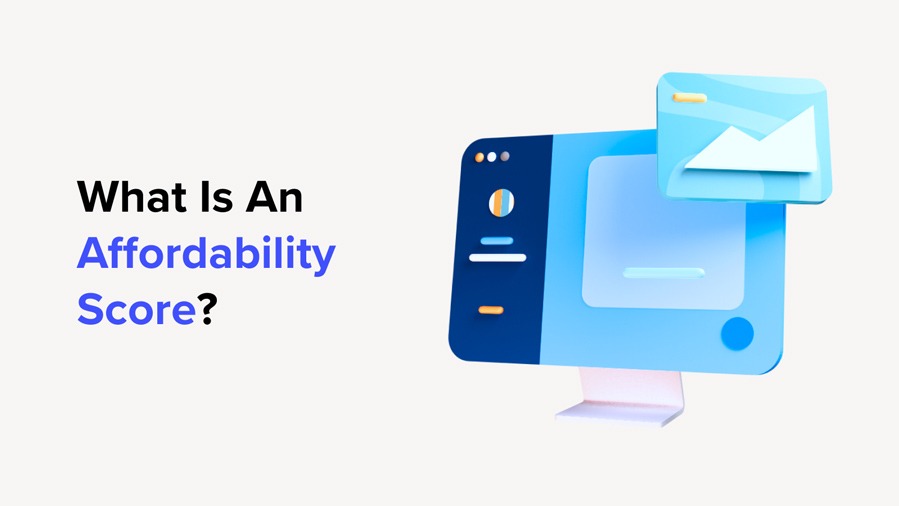

When borrowing money there is a risk involved for both the lender and the customer. It is vital to ensure that during the loan term you are able to make your repayments on time, as per your agreement with the lender.
The top priority of the Financial Conduct Authority (FCA) is responsible lending and an assessment needs to be done in order to know the customer's affordability.
Affordability scoring will be focused on your bank account as where credit scores focus on your debt. Companies like ClearScore assist you with an affordability score and as your credit score can change often, it's a good idea to regularly check what your credit profile looks like.
Your affordability score number will come from one of the Credit Reference Agencies (CRAs) and will be shown on the same ClearScore credit report.
An affordability assessment is a process which lenders go through to decide if their potential customers can afford to repay the credit they want to borrow.
Lenders are also responsible for doing thorough checks to see potential customers' financial circumstances and to assess whether or not they are able to make the minimum required repayment agreed upon between the two parties.
When applying for a loan or a credit card lenders will need to take steps to assess your affordability score. They do this by asking you about:
Your employment status and monthly income - You must be able to show how much you earn before tax as well as your take-home pay, and state whether or not you are employed either self-employed, full-time or part-time.
The extra income you have - Extra income that needs to be listed can be pension, investments, benefits, child support, or freelance work.
Monthly household expenses - This will cover bills such as loans, credit cards, car payments, childcare costs, council tax, water, insurance, electricity, gas, and other expenses on a month-to-month basis.
Other general expenses - Other debts as well as personal spendings like leisure, entertainment, food, clothing, holidays, subscriptions, and memberships.
Before you get advancement for a loan, lenders need to ensure that you are able to pay it back by an affordability check. If this is not done it can lead to irresponsible lending and the customer not being able to afford the agreed payment terms.
If it is shown that you are unable to afford a loan due to your affordability check, most lenders won’t offer you a loan. In some circumstances, you might be offered a smaller loan with lower repayments, but this is not always a guarantee.
If you have a low credit score you may also pay a higher interest rate on loans.
Affordability checks generally fail because borrowers might already be struggling to pay back debts they currently have.
Failing affordability checks can feel like a huge setback but if your financial circumstances change it is always good to reapply after 30 days if you still need a loan or credit.
Taking steps to fix your affordability is always a good way to start. You might be spending too much each month and not have enough left to manage repayments.
It is always good to talk to a lender if you fail the affordability test to see what you are able to do in order to improve your results.
Your creditworthiness is part of your affordability check and in some instances, you are able to pass even when you have bad credit.
There are lenders in the UK who specialise in lending credit to customers with poor or bad credit scores.
There are various reasons for having bad credit such as previous loan defaults, making late payments on past loans, or even bankruptcy. Not having a credit history can also affect your affordability scores.
Lenders who specialise in giving credit loans to customers who have poor or bad credit scores consider all facts and how you handle finances.
They will assess and see if you can afford monthly repayments rather than only looking at your credit scores.
When you manage your finances well, are on top of your payments, and stay within a budget, your chances of passing an affordability check will be good. If you have a good history of looking after loans or credit cards this will also put you in an even stronger position.
You can boost your affordability score by doing the following:
Staying within budget
Being up to date with all your accounts
Paying bills on time
Having some sort of savings
Cutting back on unnecessary spending
Sometimes it is more a case of cutting back before applying for credit or a loan. When addressing and improving on any of the above factors it can make your affordability score stronger even before applying.
When you pass all the checks, it is full steam ahead! Usually, this is valid for up to six months after the application has been approved depending on the lender.
Affordability checks can be a daunting task and take up a lot of your time. They are however crucial in knowing that if you are approved, for credit or a loan, you can comfortably make your repayment amount and avoid long financial difficulties.
Always give the correct documents that are requested of you and be open and honest.
Giving the wrong information might be tempting but you might make your situation worse by borrowing more than you are able to pay back.
False information that is given can be flagged and cause future problems when applying for loans or credit.